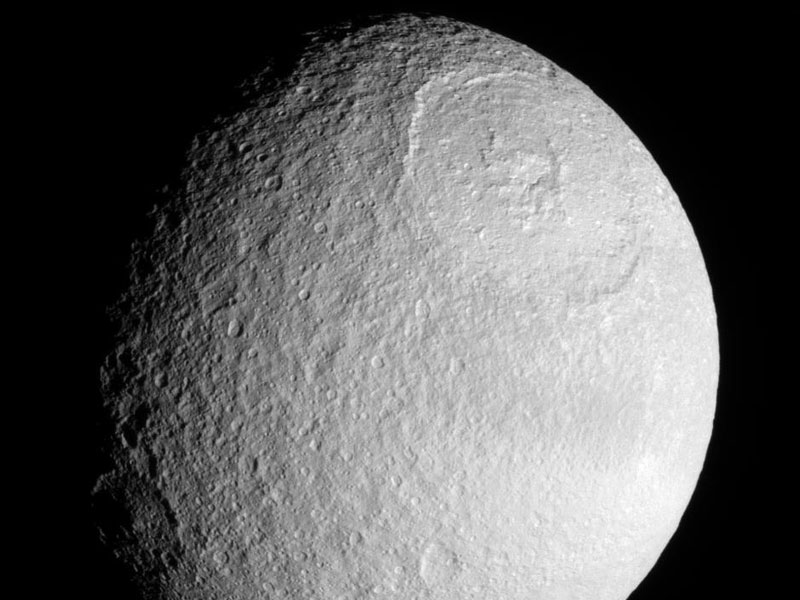
|
Explanation: Some moons wouldn't survive the collision. Tethys, one of Saturn's larger moons at about 1000 kilometers in diameter, survived the collision, but sports today the expansive impact crater Odysseus. Sometimes called the Great Basin, Odysseus occurs on the leading hemisphere of Tethys and shows its great age by the relative amount of smaller craters that occur inside its towering walls. Another large crater, Melanthius, is visible near the moon's terminator. The density of Tethys is similar to water-ice. The above digitally enhanced image was captured in July by the robot Cassini spacecraft in orbit around Saturn as it swooped past the giant ice ball.
|
January February March April May June July August September October November December |
| ||||||||||||||||||||||||||||||||||||||||||||||||
NASA Web Site Statements, Warnings, and Disclaimers
NASA Official: Jay Norris. Specific rights apply.
A service of: LHEA at NASA / GSFC
& Michigan Tech. U.
Based on Astronomy Picture
Of the Day
Publications with keywords: Saturn - Tethys
Publications with words: Saturn - Tethys
See also:
- APOD: 2025 October 5 Á A Long Storm System on Saturn
- APOD: 2025 November 16 Á Crossing Saturns Ring Plane
- APOD: 2025 September 25 Á Saturn Opposite the Sun
- APOD: 2025 September 22 Á Equinox at Saturn
- APOD: 2025 February 23 Á Saturn in Infrared from Cassini
- APOD: 2024 December 8 Á Aurora around Saturns North Pole
- Saturn at Night
